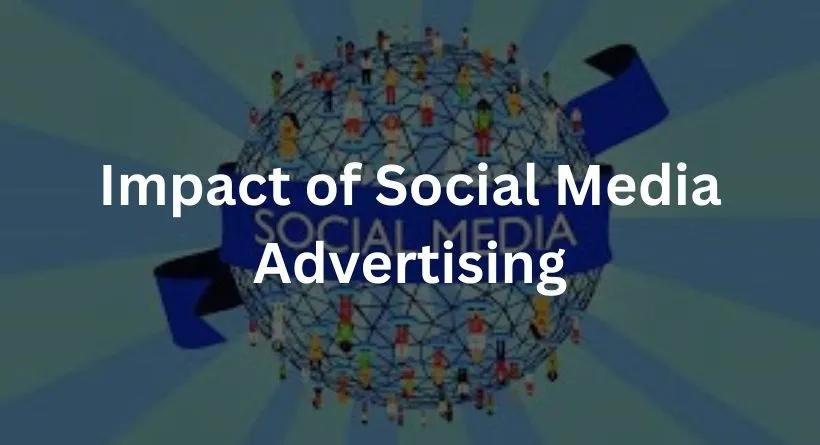
Social media has become an integral part of modern life, and businesses worldwide have recognized its potential as a powerful advertising platform. Social media advertising allows businesses to reach their target audience with precision, engage with potential customers, and build brand awareness. This article explores the impact of social media advertising on businesses, consumers, and the overall digital marketing landscape.
1. The Rise of Social Media Advertising
With the proliferation of social media platforms, advertising opportunities have grown exponentially. Businesses have embraced social media advertising to tap into vast user bases and capitalize on the platforms’ advanced targeting capabilities.
2. Targeted Advertising and Audience Reach
Social media platforms allow businesses to target specific demographics, interests, behaviours, and locations, ensuring their ads reach the most relevant audience. This targeted approach enhances advertising efficiency and return on investment.
3. Building Brand Awareness and Recognition
Social media advertising exposes brands to a broader audience, increasing brand visibility and recognition. Consistent exposure to brand messaging on social media fosters brand recall and familiarity.
4. Driving Website Traffic and Conversions
Social media advertising can direct users to a brand’s website or landing pages, driving website traffic and potential conversions. Engaging ad formats and compelling call-to-action buttons can lead to higher click-through rates.
5. Engaging and Interacting with Customers
Social media ads encourage customer engagement, allowing businesses to interact with potential customers through comments, messages, and reactions. Building meaningful connections fosters customer loyalty and satisfaction.
You may also like reading: The Role of Emotions in Digital Marketing
6. Social Proof and User-Generated Content (UGC)
Social media advertising leverages social proof through user-generated content (UGC). Positive reviews, testimonials, and customer stories shared through UGC build trust and credibility for a brand.
7. Measuring and Analyzing Campaign Performance
Social media advertising platforms provide robust analytics and insights to measure campaign performance. Marketers can track key metrics, such as impressions, clicks, conversions, and return on ad spend (ROAS), to optimize their strategies.
8. Cost-Effectiveness and Budget Optimization
Social media advertising offers flexible budgeting options, enabling businesses to tailor their ad spend to their needs. The ability to allocate budgets strategically contributes to cost-effectiveness and efficient ad campaigns.
9. Navigating the Challenges of Social Media Advertising
As social media advertising continues to evolve, businesses face challenges such as ad saturation, ad fatigue, and competition for audience attention. Adapting to these challenges requires continuous innovation and creativity.
10. Social Media Advertising for Various Platforms
Different social media platforms offer unique advertising opportunities. Businesses can customize their approach to suit each platform’s audience and content format.
11. The Role of Influencers in Social Media Advertising
Influencer marketing and social media advertising often intersect. Collaborating with influencers allows brands to tap into their followers’ trust and authenticity, amplifying the reach of their advertising campaigns.
12. Ethical Considerations in Social Media Advertising
Maintaining ethical practices in social media advertising is essential. Brands should be transparent, avoid misleading content, and respect user privacy.
13. Leveraging Video and Visual Content

Visual content, particularly video, is highly engaging on social media. Brands can leverage video ads and visually appealing content to captivate audiences and convey their messages effectively.
14. Adapting to Social Media Algorithm Changes
Social media algorithms constantly evolve, affecting the visibility of organic and paid content. Staying informed and adjusting strategies to align with algorithm changes is vital for successful advertising.
Conclusion
Social media advertising has revolutionized the digital marketing landscape, providing businesses with unparalleled opportunities to connect with their target audience. Through precise targeting, engaging content, and measurable results, social media advertising empowers businesses to achieve their marketing objectives. Embracing the impact of social media advertising enables businesses to thrive in the digital age, expand their reach, and build lasting relationships with customers in the ever-evolving social media ecosystem.
FAQs
What are 5 benefits of social media advertising?
Top 5 Social Media Marketing Benefits
· Brand Recognition. Companies of all sizes and in all sectors aspire to establish their brands.
· a rise in sales.
· enhanced SEO.
· improved client services.
· Opportunities for retargeting.
What is social media advertising and its benefits?
In social media advertising, paid advertisements are sent to a target audience through social media networks. On prominent media channels with billions of active users, these advertisements enable advertisers to target desired consumers, promote their brand, and increase sales.
Why is social advertising important?
Social media marketing may promote brand recognition, boost revenue, and turn consumers into brand evangelists. Businesses may identify their target market and develop buyer personas in order to generate pertinent messaging and start discussions that resonate with those people.





